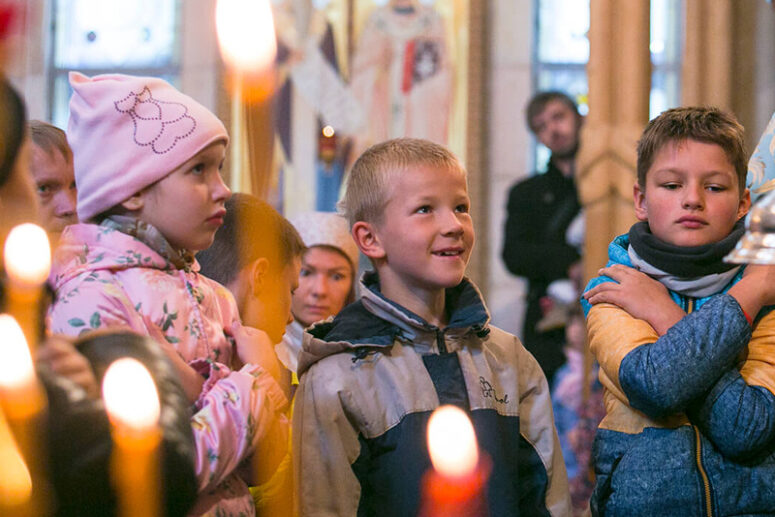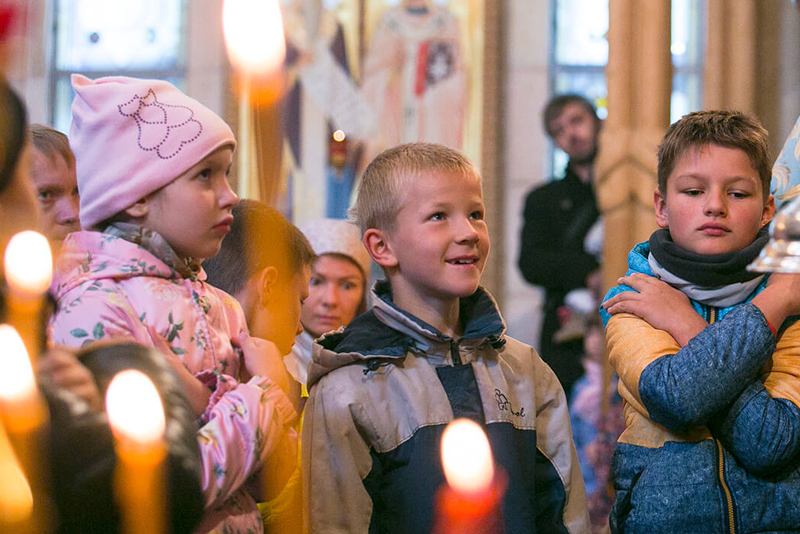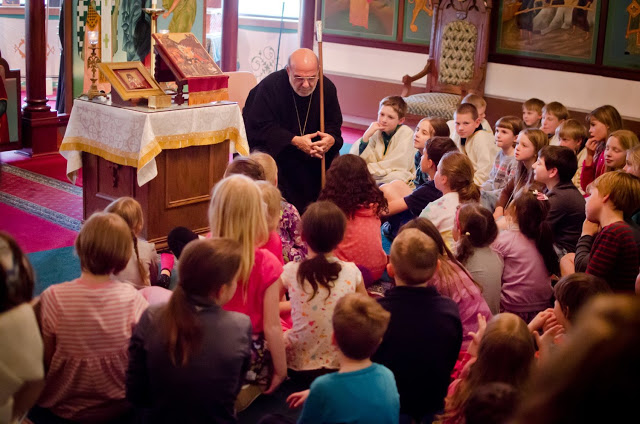
God has a plan for all the people who come into this world. He had created this world so each person could fulful their distinct mission. God wants all of us to be saved and live forever in heaven among His angels and saints.
As our children grow, they develop their individuality and personhood. They are preparing to realise their potential so they can fulfil God’s plan for them and sing their solo part in the symphony of God’s world. They will need to acquire the intellectual, reflective and perceptive capabilities to interact with this world and learn from their experience of doing so. Nobody else can do it for them.
As Orthodox parents, you may congratulate yourself on a job well done. You have raised your children in the Orthodox faith, and you have been bringing them to Church for confession and communion. They know how to pray, and they understand the importance of observing God’s commandments.
Your child is now an adolescent, so it is perhaps time for you as parents to step back and give him more space to form an independent relationship with God and His world. This does not mean leaving your children to their own devices. They still need you as their gentle, kind and considerate guides who can help them avoid unnecessary mistakes or falling into sin. But above all, your children need your prayers and your blessings. They say that parental prayer is your children’s gateway to heaven. “When parents give their blessing, they give strength to their children’s homes” (Sirach 3:9).

One thing you should never do is raise your children as your exact copies. You would only harm your child. You would not be teaching him to look within, where, in the words of our Lord the kingdom of God is found. Instead, by insisting that your children look to you, his prize will be you, but not God’s kingdom. Knowing God is always personal. In his wonderful homilies, Theofan the Recluse spoke of prayer as an art. Why are physical prayer practices uncommon for Orthodox Christianity, while in Yoga or Islam they are well established? The holy fathers of the Orthodox Church give this simple answer: prayer is a creative undertaking of an individual who reaches out towards God and of God who reaches out to the individual. Many things are important for such co-working to take place, such as personal space, a secret chamber in one’s heart, and the sacred corner in the heart of hearts where man and God meet face to face.
It is impossible to put any of these in place for your child. Personal experience and one-on-one communication with God are essential.
Frequently, adolescents stop coming to Church because they need the time and space to explore the Truth and to reflect on it by themselves, to test and to learn on their own the tenets of the Church’s teachings and its canons.
So your silence and the prayer that comes with it will be more productive than words. Stepping aside and giving freedom to your adolescent is a very important skill that will help him prepare himself for independent life in this world. Parents should learn to keep a lower profile, and keeps their presence in the lives of their adolescent children a little less visible while keeping the hierarchy in the parent-child relationship. This will not diminish your parental authority given to you by God’s commandments, but giving your child more space and more independence will better prepare him for his independent journey in this world.
Do not let yourselves despair if your child is going to church less frequently than before. They need their chance to find their own way, to learn how to listen to their hearts and to disclose the talents which God had bestowed on them.
Many Orthodox churchgoers complain: “My son used to go to church a lot when he was a small boy, he used to assist the priest in the altar, but he has grown up and is no longer doing this”.

Just imagine what might happen if all the boys who assisted the priest remained in their positions despite sufficient numbers of other children willing to replace them. The altar would be crowded with people. There would be no room left to stand. But why would we need so many assistant priests? Would it not be wiser to let someone who has spent so many months or years in the altar explore other alternatives, benefiting from the rich gift of the holy spirit with which he has already been endowed? Perhaps God has other plans for him – he might become an excellent joiner, welder, teacher or even the president instead. We should give them the freedom to look. We should not expect all of them to become priests. Priesthood is a calling, just like many other careers. When God calls them to the service of a priest, they will respond. Your adolescent has been coming to Church more rarely than before and taking communion less frequently. But he has yet to find his way towards God; he can no longer do this through you.
Others are also complaining: “Most people coming to church these days are old ladies”. What is the basis of these grievances? Let us recall this fragment from an epistle by Apostle Paul: An unmarried woman or virgin is concerned about the Lord’s affairs: Her aim is to be devoted to the Lord in both body and spirit. But a married woman is concerned about the affairs of this world—how she can please her husband (1 Corinthians 7: 34). 7: 34). The priority for a young person is to start a family, gave children to provide for his loved ones and to make their home comfortable. He should take care not to become fully consumed by these tasks, so his heart is in the right place. Still, finding a partner and supporting the family take a very important place in the life of a young person. In later years, as his hair goes grey with age, and he becomes wiser and more experienced, he will remember about God and eternal life, and will return to Church.
Older people in our churches are our precious assets. They have wisdom, and wise people will seek out God’s Truth. So seeing so many older people at church is a good sign.
As for the parents of today’s adolescents, my advice to them will be not to despair. Instead, let us watch with amazement and admiration how our Lord is guiding then on the journey towards His sacred Truth; let us celebrate their progress along this path that is full of joys and sorrows, sadness and happiness, confusion and discovery. Our children are at the start of a great adventure and a spectacular journey.
Translated by The Catalogue of Good Deeds
Source: https://pravlife.org/ru/content/neskolko-slov-o-roditelskoy-trevoge-ili-pochemu-chasto-deti-vyrastaya-rezhe-hodyat-v-hram




